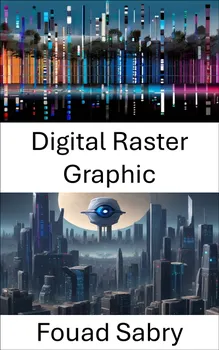What is Digital Raster Graphic
A digital raster graphic (DRG) is a digital image resulting from scanning a paper USGS topographic map for use on a computer. DRGs created by USGS are typically scanned at 250 dpi and saved as a TIFF. The raster image usually includes the original border information, referred to as the "map collar". The map file is UTM projected and georeferenced to the surface of the Earth. DRG's are regularly used in GIS applications. DRGs were first produced in 1995.
How you will benefit
(I) Insights, and validations about the following topics:
Chapter 1: Digital raster graphic
Chapter 2: Raster graphics
Chapter 3: File format (GIS)
Chapter 4: GeoTIFF
Chapter 5: Image file format
Chapter 6: GDAL
Chapter 7: Web mapping
Chapter 8: Bitmap
Chapter 9: United States Geological Survey
Chapter 10: Landmap
(II) Answering the public top questions about digital raster graphic.
(III) Real world examples for the usage of digital raster graphic in many fields.
Who this book is for
Professionals, undergraduate and graduate students, enthusiasts, hobbyists, and those who want to go beyond basic knowledge or information for any kind of Digital Raster Graphic.
























